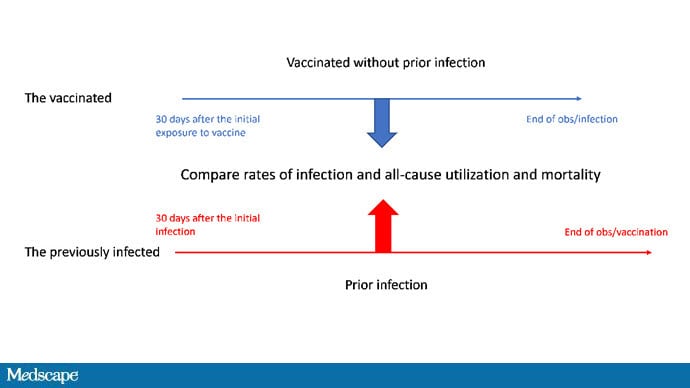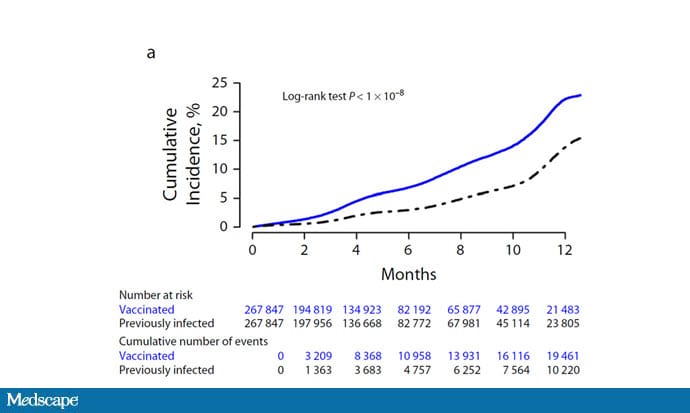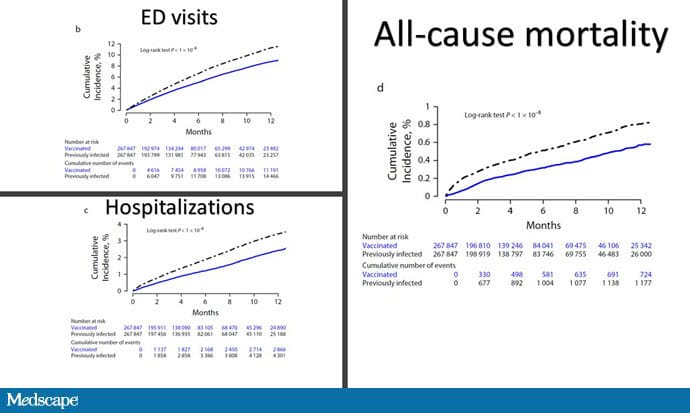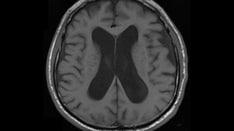Welcome to Impact Factor, your weekly dose of commentary on a new medical study. I'm Dr F. Perry Wilson of the Yale School of Medicine.
An interesting paper started making the rounds last week, one with a conclusion that was compelling in its simplicity and appealed to some preexisting beliefs: Vaccination against COVID provides more protection than being infected by COVID.
At first, you hear that and you're like, of course vaccination is better than infection. Infection makes you really sick and can kill you, and vaccination doesn't.
But that's not what the study was saying. It was saying that vaccination was better than infection even among those who recovered from their COVID infection. And that, if true, would be really important, but also really surprising.
What made COVID so dangerous initially was that it was a novel human pathogen — something none of our immune systems had encountered before. There are essentially two ways to educate your immune system about SARS-CoV-2: Get infected by it or expose your immune system to a vaccine. And, pretty clearly, the vaccine is better from a risk-benefit profile.
But what if you've already been infected? What if you, fortunately, made it through that initial infection? Are you as protected as you would have been had you been vaccinated? More protected? There's certainly an argument for the latter. After all, real COVID infections expose your immune systems to way more antigens than the vaccine — and likely in higher doses as well.
But to date we don't have a great head-to-head study on this topic. Until now.
I'm talking about this study "SARS-CoV-2 Infection, Hospitalization, and Death in Vaccinated and Infected Individuals by Age Groups in Indiana, 2021-2022," appearing in the American Journal of Public Health.
Researchers leveraged the fact that Indiana has a remarkably detailed accounting of patients infected with COVID and vaccinated against COVID to create a unique cohort study. Here's how it worked.
They identified people from the state who were infected with COVID and who had not been vaccinated, and people who had been but had never been infected. They then searched for matches between the groups. For each vaccinated person, they found a person who had been infected at around the same time, who had the same age, sex, race, zip code, and number of preexisting conditions. Thirty days after the event, vaccination or infection, the clock started ticking. The idea here is that, by 30 days later, immunity from that exposure has built up.

In total, they were able to create 267,847 matched pairs.
The analysis was fairly straightforward: You have a person who was vaccinated and a similar person who was infected at the same time. What would happen going forward?
The results are pretty interesting.
The vaccinated people were more likely to become infected in the next 6 months than the previously infected people — about two times as likely, actually.

But in terms of the other outcomes — emergency room visits, hospitalizations, and death — the vaccinated people did better.

In other words, given the choice between infection and vaccination, it's pretty clear that you'd choose vaccination.
But let's be a bit careful here. Obviously, people who choose to get vaccinated are different from those who don't, and in ways that aren't captured by matching for age, race, sex, and zip code. People who get vaccinated might be healthier in many other ways; they might have been more careful about masking or washing their hands. The authors argue that this isn't a huge problem. After all, the infection rate was higher in the vaccinated group, but I'm not sure I buy it. Comparing initial infections and recurrent infections is pretty much apples and oranges.
The other question I have is one of biologic plausibility. Sure, vaccination is the safer way to educate your immune system, but assuming you survive your infection, you'd think the overall effects would be pretty similar. Multiple rounds of vaccination may have additive effects, but this analysis was conditioned on the first vaccine dose. One explanation could be that COVID infection hurts you in long-term ways, such that even if you survive the initial infection, your subsequent risk of bad events is higher.
There's a potentially bigger issue with this analysis as well. In the methods section, the authors write, "Matched pairs were censored when an infected participant received a vaccination or a vaccine recipient became infected."
At first, this might make sense. If a previously infected person is vaccinated, we are no longer seeing the "benefit" of prior infection alone. But the problem arises in the opposite case. Censoring a matched pair when the vaccinated member of the pair gets COVID means that you can never observe things like death from COVID in that individual; all events have to happen before infection. I suppose there is an argument that this is fair, since the infected person in the pair, by design, had survived their COVID infection for at least 30 days. But I am concerned that this would bias the results in favor of vaccination.
Of course, even if you believe the analysis, it isn't entirely relevant to the current status of COVID. Few of us are in the position that the study creates, never having been infected and deciding whether to obtain immunity through a vaccine or "naturally." Nowadays, the more relevant clinical question is whether those who have been previously infected, but not yet vaccinated, would do better in the long term if they bit the bullet and got the vaccine. When that study gets published, we'll cover it here.
For Medscape, I'm Perry Wilson.
F. Perry Wilson, MD, MSCE, is an associate professor of medicine and director of Yale's Clinical and Translational Research Accelerator. His science communication work can be found in the Huffington Post, on NPR, and here on Medscape. He tweets @fperrywilson and his new book, How Medicine Works and When It Doesn't, is available for pre-order now.
Follow Medscape on Facebook, Twitter, Instagram, and YouTube
Credits:
Image 1: American Journal of Public Health
Image 2: American Journal of Public Health
Image 3: American Journal of Public Health
Medscape © 2022 WebMD, LLC
Any views expressed above are the author's own and do not necessarily reflect the views of WebMD or Medscape.
Cite this: F. Perry Wilson. Could Vaccines Provide Better Immunity Than COVID Infection? - Medscape - Dec 20, 2022.













Comments